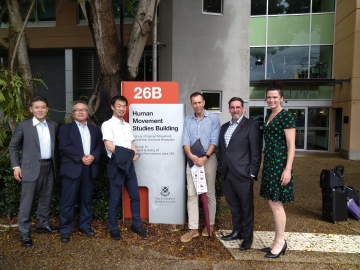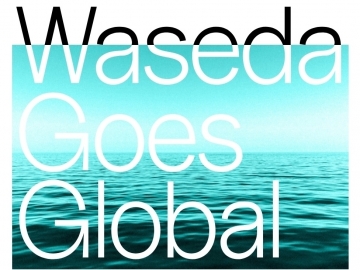Waseda University’s Multiscale Analysis, Modelling and Simulation Unit (Top Global University Project) presents a three-day special online quantum physics seminar series.
Dates:
- Mon, Feb. 7, 2022, 17:00-19:00 JST
- Tue, Feb. 8, 2022, 17:00-19:00 JST
- Thu, Feb. 10, 2022, 17:00-19:00 JST
Venue: Online via Zoom
Language: English
Audience: Open to students, faculty, staff
Participation Fee: Free of charge
Contact: Department of Physics, Professor Kazuya YUASA – yuasa(a)waseda.jp
Website: https://www.f.waseda.jp/yuasa/SGU2021.html
Details: See below for the details for each seminar (also available here.)
Dimensional Reduction of Gauge Theories
Speaker: Prof. Saverio Pascazio (University of Bari, Italy)
Date: Mon, Feb. 7, 2022, 17:00-19:00 JST
Abstract:
We derive and discuss one- and two-dimensional models for classical electromagnetism by making use of Hadamard’s method of descent. Low-dimensional electromagnetism is conceived as a specialization of the higher dimensional one, in which the fields are uniform along the additional spatial directions. We then consider two-dimensional models for a charged spin-1/2 particle, both in the free case and in the presence of the electromagnetic field, by applying the same reduction technique. The basic properties of these theories, as well as their relation with existing models for two-dimensional matter, are discussed.
Long-Time Stability of Perturbed Quantum Symmetries
Speaker: Prof. Paolo Facchi (University of Bari, Italy)
Date: Tue, Feb. 8, 2022, 17:00-19:00 JST
Abstract:
We show that for any finite-dimensional quantum systems the conserved quantities can be characterized by their robustness to small perturbations: for fragile symmetries, small perturbations can lead to large deviations over long times, while for robust symmetries, their expectation values remain close to their initial values for all times. This is in analogy with the celebrated Kolmogorov-Arnold-Moser theorem in classical mechanics.
References:
D. Burgarth, P. Facchi, H. Nakazato, S. Pascazio, and K. Yuasa,
“Kolmogorov-Arnold-Moser Stability for Conserved Quantities in Finite-Dimensional Quantum Systems,” Phys. Rev. Lett. 126, 150401 (2021);
“Eternal Adiabaticity in Quantum Evolution,” Phys. Rev. A 103, 032214 (2021).
Bounds for the Rotating Wave Approximation
Speaker: Prof. Daniel Burgarth (Macquarie University, Sydney)
Date: Thu, Feb. 10, 2022, 17:00-19:00 JST
Abstract:
The rotating wave approximation is a commonly used approximation in quantum physics. Often, it is taught in a very ad-hoc manner, without a proper justification. In this lecture I will give a gentle introduction to the subject and show how the quality of the approximation can be bounded.








